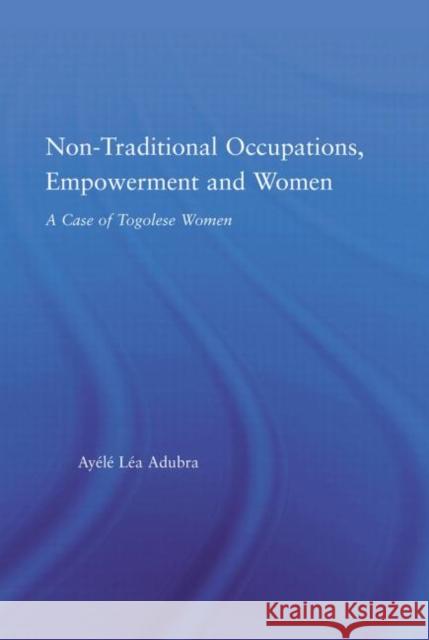Non-Traditional Occupations, Empowerment, and Women : A Case of Togolese Women » książka
Non-Traditional Occupations, Empowerment, and Women : A Case of Togolese Women
ISBN-13: 9780415973595 / Angielski / Twarda / 2005 / 154 str.
Non-Traditional Occupations, Empowerment, and Women : A Case of Togolese Women
ISBN-13: 9780415973595 / Angielski / Twarda / 2005 / 154 str.
(netto: 668,09 VAT: 5%)
Najniższa cena z 30 dni: 654,86
ok. 22 dni roboczych
Bez gwarancji dostawy przed świętami
Darmowa dostawa!
This study explores the relationship between the nature and context of non-traditional occupations and the empowerment status of women in society. Specifically, it examines the extent to which women in non-traditional occupations have been empowered by their skills, knowledge, and position within the Togolese Government's existing training policies for the increased participation of women in non-traditional sectors of the labor force.
In Togo, like many other African countries, several evaluation exercises have been conducted regarding the number of women who have successfully completed their training in non-traditional occupations. However, none has focused on how those women cope with everyday cultural and social challenges or addressed the issues of movement for the development of women.
Nineteen (19) women who had received a qualification in a non-traditional occupation, were interviewed on their perceptions of empowerment, and on what gains, difficulties and challenges the faced in their lives. Theanalysis of their related experiences compared with other Togolese informants as well as the national and international literature on empowerment suggests that although there are some gains, the reality of empowerment is still an unfulfilled dream for those women.
The conditions affecting these women's empowerment in the Togolese society include expectations as related to the roles and duties of a woman and the country's socio-economic situation. Strategies to create sustainable employment are recommended to increase the potential of non-traditional occupations to foster empowerment.











